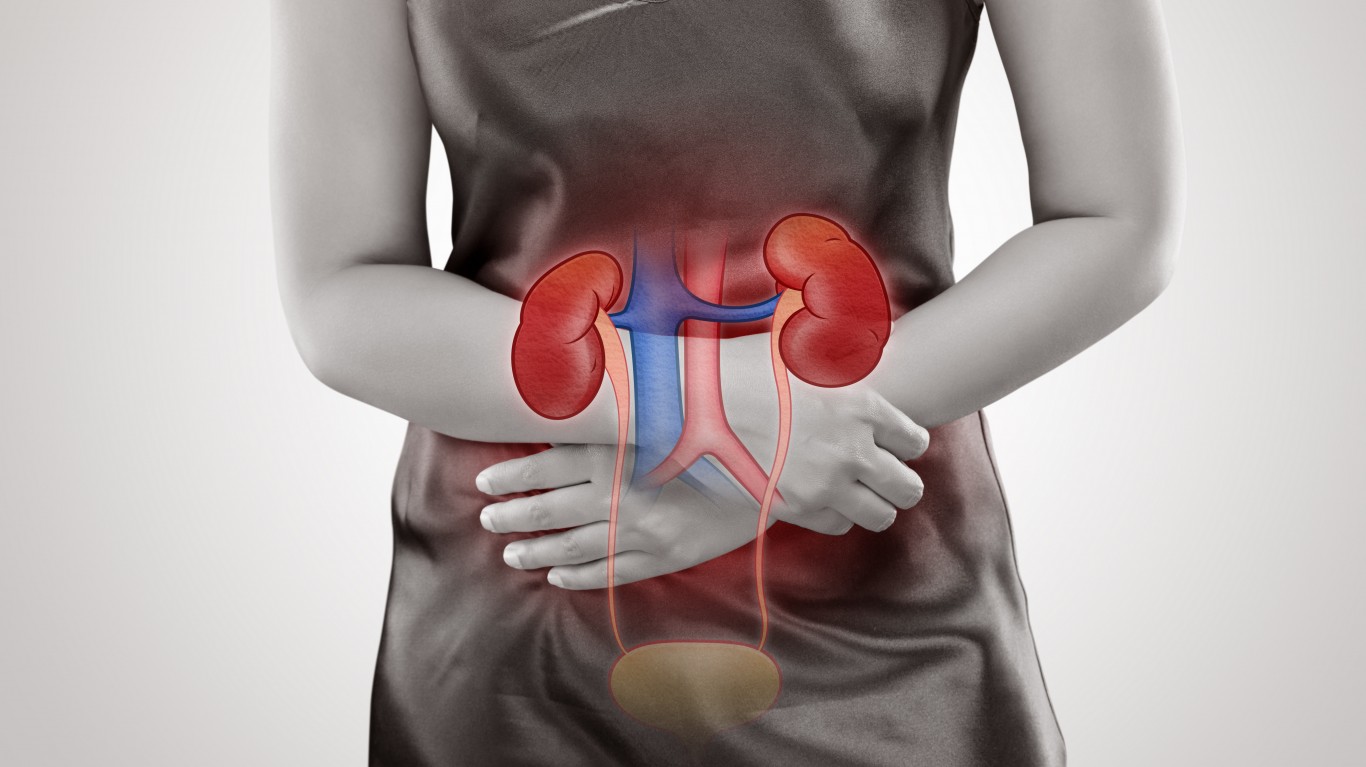Health and Healthcare
Vadadustat Makes the Case for Blockbuster Status After Japanese Chronic Kidney Disease Studies

Published:
Last Updated:

Patients suffering anemia due to chronic kidney disease (CKD) are sure to be content with new positive top-line results from two Phase 3 active-controlled pivotal studies. In this case, they were evaluating vadadustat, an investigational oral hypoxia-inducible factor prolyl hydroxylase inhibitor in Japanese patients.
In Japan an estimated 13 million people are afflicted with advanced stages of CKD. Note that anemia is common in patients with CKD and its prevalence increases as CKD progresses.
In the United States, about 31 million people are expected to have a form of CKD, which makes the case for vadadustat to be an instant blockbuster if approved domestically.
These studies were conducted by Akebia Therapeutics Inc. (NASDAQ: AKBA) in collaboration with its Japanese partner, Mitsubishi Tanabe Pharma.
Each study, one in non-dialysis dependent subjects and one in hemodialysis-dependent subjects, met its primary endpoint. In addition, results from two Phase 3 single-arm studies conducted by Mitsubishi Tanabe in peritoneal dialysis subjects and hemodialysis subjects further support vadadustat’s potential in these indications. The company expects to submit a Japanese New Drug Application in 2019.
As for the specifics, the Phase 3 study in non-dialysis dependent CKD subjects met its primary endpoint, with the mean hemoglobin (Hb) level at week 20 and week 24 at 11.66 g/dL (95% confidence interval 11.49, 11.84 g/dL) for vadadustat-treated subjects compared to 11.93 g/dL (95% confidence interval 11.76, 12.10 g/dL) for darbepoetin alfa-treated subjects. The difference in mean Hb was −0.26 g/dL (95% confidence interval −0.50, −0.02 g/dL), achieving the pre-specified non-inferiority criterion of −0.75 g/dL.
Separately, the Phase 3 study in dialysis-dependent CKD subjects met its primary endpoint, with the mean Hb level at week 20 and week 24 at 10.61 g/dL (95% confidence interval 10.45, 10.76 g/dL) for vadadustat-treated subjects compared to 10.65 g/dL (95% confidence interval 10.50, 10.80 g/dL) for darbepoetin alfa-treated subjects. The difference in mean Hb was −0.05 g/dL (95% confidence interval −0.26, 0.17 g/dL), achieving the pre-specified non-inferiority criterion of −0.75 g/dL.
John P. Butler, president and CEO of Akebia, commented:
Collectively, these data provide further confirmation of vadadustat’s potential to meaningfully transform the treatment paradigm for patients with anemia due to CKD. These results add to our dataset demonstrating the potential for vadadustat to effectively manage hemoglobin levels in both dialysis-dependent and non-dialysis dependent patients, including those who convert from erythropoiesis stimulating agents.
Shares of Akebia were last seen up about 20% at $8.81 on Tuesday, in a 52-week range of $5.20 to $14.04. The consensus price target is $17.29.
If you’re one of the over 4 Million Americans set to retire this year, you may want to pay attention. Many people have worked their whole lives preparing to retire without ever knowing the answer to the most important question: am I ahead, or behind on my goals?
Don’t make the same mistake. It’s an easy question to answer. A quick conversation with a financial advisor can help you unpack your savings, spending, and goals for your money. With Zoe Financial’s free matching tool, you can connect with trusted financial advisors in minutes.
Why wait? Click here to get started today!
Thank you for reading! Have some feedback for us?
Contact the 24/7 Wall St. editorial team.